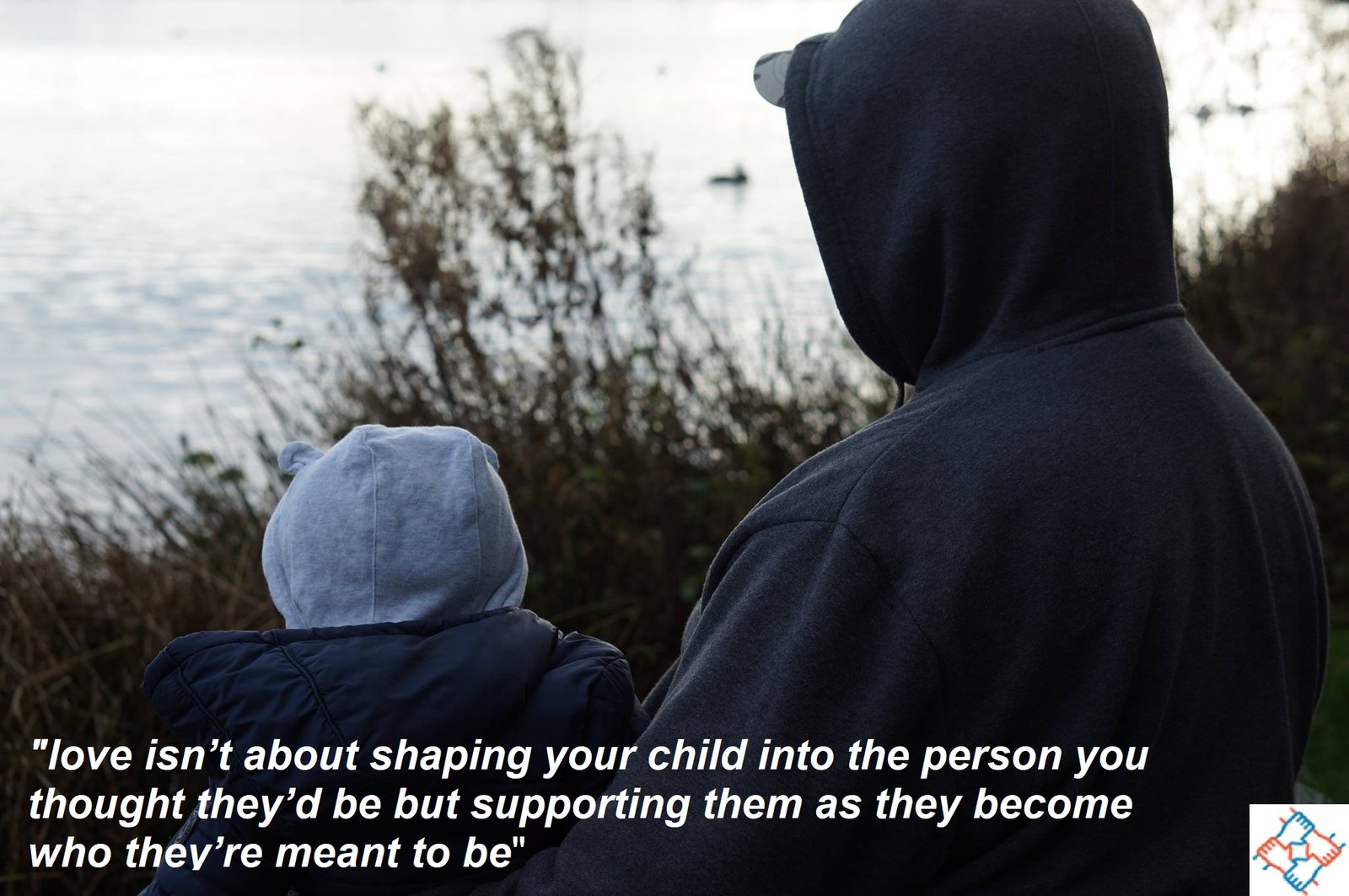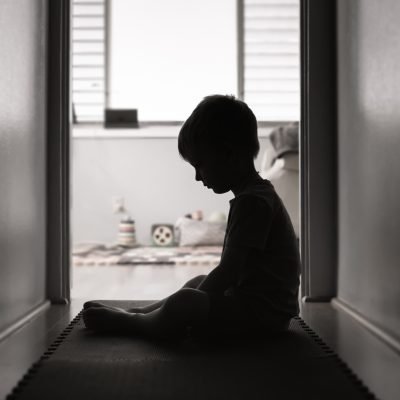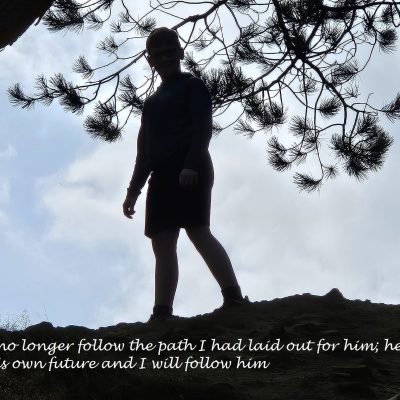INTRO FROM SAM
I have previously shared insights into my personal journey since my son hit burnout. It has been heart-breaking, frustrating and exhausting, not unfamiliar to many of you.
There have been several times this year where my partner and I have had strongly opposing views on how we should parent and support our son. It has nearly broken our 22-year relationship. I am acutely aware that there are many relationships that have been torn apart by the immense pressure of the SEN journey.
As I considered some of these difficulties this week, I asked my partner, Tony, if he would share his experience and give the other side to my story. He is not on social media, but he agreed to write to you all this week and give an insight into a dad’s view. I hope this reaches the dads in the group, an underrepresented voice but no less important. I also hope it reaches those that may be facing similar difficulties in your own relationships.
Without further ado, I present to you the words of the man that has been my anchor for the last 22 years and who, despite the many challenges we have faced, remains steadfastly ‘my Tony’…
Over to Tony – Steps in the Direction of Understanding
After a decade together, our family felt incomplete, so we made the decision, somewhat late in life, to have a child. When my son was born on a Friday night, by emergency C-section, I was handed him—wrapped, hatted, and tired out. He gripped my little finger in his tiny hand and fell asleep. In that moment, I felt the deepest pride any father could know.
He was healthy and strong—the embodiment of everything I could have hoped for. I looked at him and saw not just the boy he was, but the man I thought he would become: kind, successful, and full of limitless potential.
In the early years, everything seemed to unfold as expected. He was quick to learn, inquisitive, and sharp. He loved me to read my favourite poem ‘If’ by Rudyard Kipling at bedtime. One night, I skipped a line by accident, and his small voice recited the missing words. That’s when I realised, he had been memorising those words that I had recited night after night. By four years old, he could remember nearly the entire poem, and we proudly showed off our party piece to family while on holiday. I felt like the world was still wide open for him, with all the potential I had dreamed of.
Then, at age seven, came the autism diagnosis.
There were plenty of signs leading up to this, and the picture I’d painted in my head had already begun to shift. But accepting the diagnosis wasn’t hard. Autism, I thought, is just another part of him—another path, but nothing too serious. After all, it’s a spectrum. My son was still brilliant in his own way, and we’d walk this road together. I thought we’d adapt, learn a few new strategies, and he’d continue to grow strong and capable, just as I’d always imagined.
But as time passed, his differences became more apparent. It wasn’t the “lighter” version of autism I had initially hoped for—it was more involved. His behaviour began to deteriorate in ways I couldn’t understand or allow. What started as a few challenging moments turned into daily struggles—refusal to comply, defiance, and what I now realise was his overwhelming need to control everything around him. We fought more often—not just him and me, but all three of us. Sam and I, once proud of our united approach, found ourselves at odds on how to parent this boy we loved so much but were finding harder and harder to reach.
I used to joke that you had to tell him something at least 1,000 times before it would sink in. I constantly reminded him that “because I said so” was all the justification he needed to do something. I developed a mantra: “Straight away, as fast as you can, without arguing or paddying.” It became my internal compass, but it never seemed to guide him. Every request felt like a battle, as though at nine he was already a sulky teen.
Things escalated at school, and the Pathological Demand Avoidance (PDA) that Sam had long suspected started to emerge stronger. To me —at first, it sounded like woo-woo nonsense, a label applied post hoc to excuse bad behaviour. It didn’t help that PDA wasn’t recognised in the DSM, the diagnostic bible we lean on to make sense of what’s real and what’s not. I resisted the explanation, clinging to my belief that discipline was the answer. If we were just consistent enough, firm enough, he would have no choice but to comply, follow rules, and behave as I expected.
The more Sam tried to nurture and comfort him, the more I felt my approach was losing ground. When it was just me and my boy, he complied—reluctantly, yes, but he complied. I took that as evidence my stricter approach was working. I thought my Sam’s softer, more nurturing ways would undo the discipline I was trying to instil. She was always the good cop, so my cop had to get worse and worse to be effective. He learned he only had to withstand my telling-off for long enough, and she would step in. I believed if only we were united, we could “fix” this behaviour. But the harder I pushed, the worse things got.
I argued with him. I argued with Sam. And I second-guessed myself. Surely this was just a matter of discipline. Surely, he was just being difficult because he wanted to be. If I layered consequences and punishments high enough, eventually, he’d get with the program. Right?
But nothing changed. If anything, it got worse. The only thing that became clear was that I couldn’t control this with sheer force of will. My frustration wasn’t solving anything, and neither was my stubborn belief that he just needed to try harder, be better, or act right.
I sought counselling. I read articles and watched YouTube videos. Slowly, painfully, I came to realise that my son wasn’t choosing this behaviour. He wasn’t being bad because he was bad. He wasn’t lazy, manipulative, or spoiled. He was anxious, terrified, and struggling in ways I couldn’t comprehend—because my mind simply doesn’t work that way. His refusal wasn’t defiance for its own sake—it was rooted in his anxiety, his desperate need to control something in a world that constantly overwhelmed him.
This realisation was one of the hardest things I’ve had to accept. Even now, I wrestle with it. There are moments when I see things clearly—when I understand that every day, he’s battling an internal storm of anxiety, and that his refusal to do what I ask is born from that storm. But those moments are fleeting. The weeks and months wear on, and I find myself falling back into the same old patterns. I get frustrated. I raise my voice. I forget that this isn’t a battle I can win with punishment or demands. I forget that this isn’t a fight against him, but a fight with him, against the anxiety that rules his life.
I fall into the familiar mindset that says he should just try harder, be better, do what’s asked of him. And every time, I have to pull myself out of that mindset again, reminding myself that this isn’t a battle resolved in a day—it’s a war fought over years. It demands more patience than I ever thought I had in me.
But through all of this, there is hope. My son and partner are teaching me as much as we are teaching him. He’s showing me that love isn’t about shaping your child into the person you thought they’d be, but supporting them as they become who they’re meant to be. And I see glimpses of the person he will grow into—strong, resilient, and capable of happiness in his own way.
It takes an inordinate amount of patience to choose, day after day, to deal with him in the way he needs—not the way I want. But in those moments when I manage it, I see the light at the end of this journey. He will become a good man, happy, and perhaps even better equipped for this world than I ever was. And though his path may be different from what I first imagined, it will be no less full of potential.
In those early years, when we recited my favourite poem, ‘If’, together at bedtime, I didn’t realise how deeply those words would come to resonate. Now, they feel like a promise—for him and for me.
If you can meet with Triumph and Disaster
And treat those two impostors just the same;
Yours is the Earth and everything that’s in it,
And—which is more—you’ll be a Man, my son!
From Tony





